7 ways AI is impacting your life across Charlotte. ‘It’s the new future.’
From buying Hornets merch to having a robot serve you lunch, AI is being used in unexpected ways throughout the Charlotte region.
AI also is popping up in hospitals, security operations and law firms, among many other places. And its usage is just going to continue to grow.
AI, or artificial intelligence, is a very broad term, said Minhaj Alam, assistant professor of electrical and computer engineering at UNC Charlotte. “Any machine that can make any decision can be an AI,” he said. “We’re already immensely using AI in our day-to-day life and we don’t even realize it.”
That ranges from automatic braking in cars to removing backgrounds from photos.
What’s more, smart robots using artificial intelligence to complete tasks are no longer just in the realm of science fiction. They are here in Charlotte.
Last spring, Yiding Hot Pot in Pineville debuted with surprise servers — a pair of robots named Wall-E and Eve, with four built-in shelves each to deliver food to the tables.
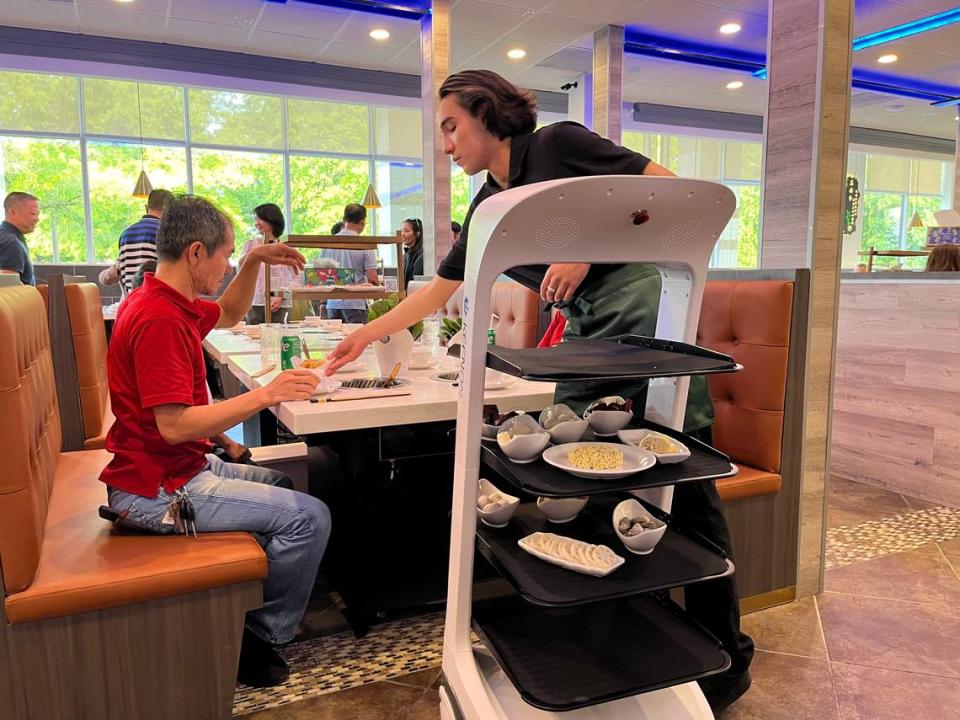
Then last month, cousins Chetan and Neel Patel opened the Texas-based franchise RobotLAB in south Charlotte in a 2,000-square-foot warehouse off Westinghouse Boulevard. Their AI-powered robots can be used for delivery, cleaning or customer service in industries from restaurants and hotels to assisted living and retail centers.
“We have robots for every use case you can think of,” Chetan Patel said. “It’s the new future. It’s there to make our jobs easier, more efficient and smarter.”
Here are seven ways AI is changing business and experiences in Charlotte:
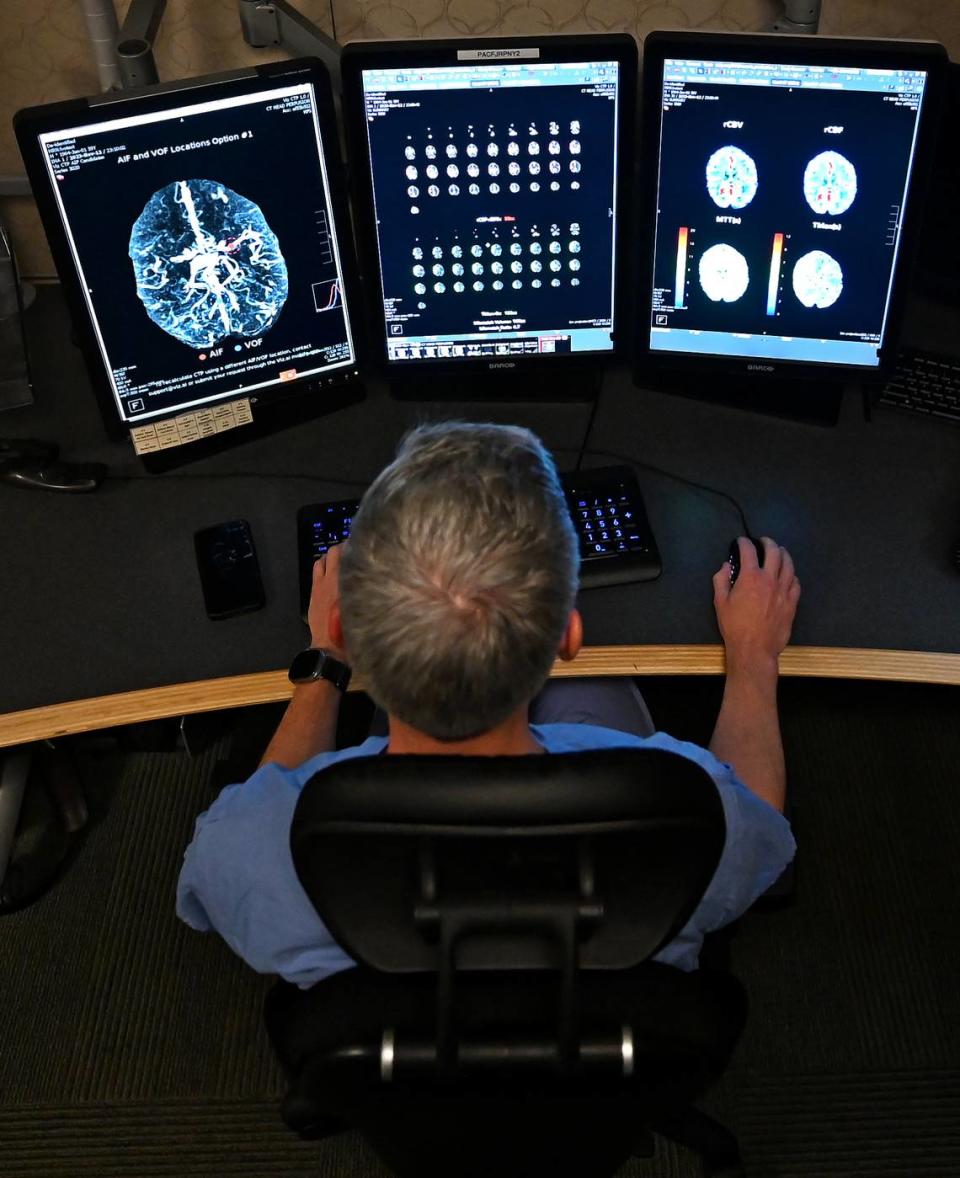
AI at a UNC Charlotte lab
AI usage can be as simple as training a robot to follow a line to reach a destination. But these days, AI is going further into what Alam calls “deep learning.”
“When we train a machine or a (computer) system to learn from data and then make some decision, that’s deep learning AI,” Alam said.
The popular ChatGPT, for example, is a large language model trained to answer questions with context.
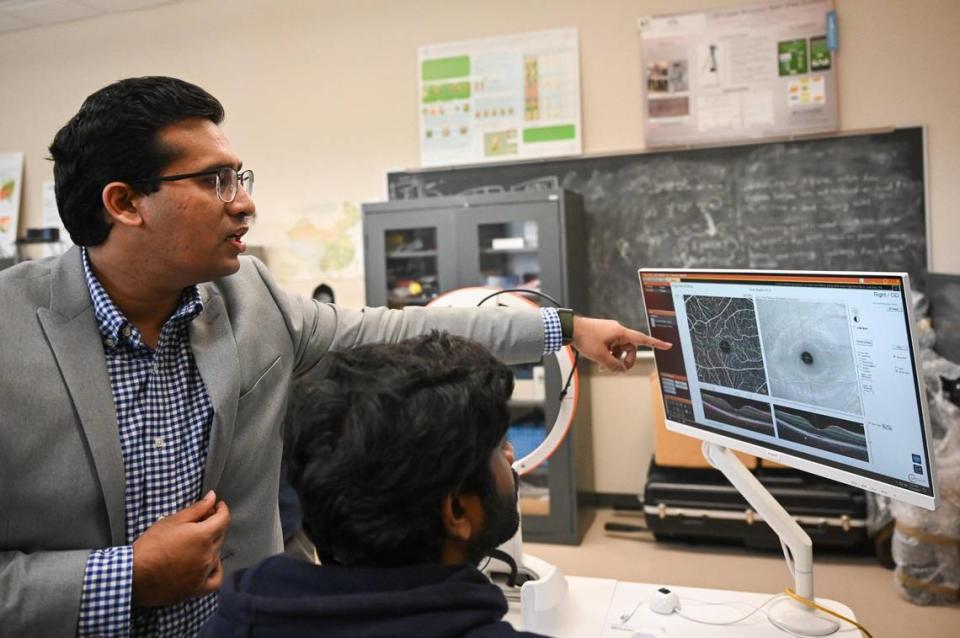
In his lab, Alam’s focused on developing AI models in ophthalmology and radiology by deploying machines for diagnosing or predicting diseases. Using retina imaging data from hospitals, for instance, AI is trained to learn tasks from prediction to progression of disease.
An example of this is the IDx-DR medical device. Its AI offers early detection and automatically diagnoses signs of diabetic retinopathy — damage to the retina caused by too much sugar — through retinal images.
Alam’s lab is leading a multi-institutional research effort on geographic atrophy, a chronic progressive degeneration of the macula for which there is no cure. “We’re trying to champion those AI models for prediction (of geographic atrophy),” Alam said
But, he added, “Any of the AI models are designed by humans and they cannot replace humans. It will just revamp the jobs.”
Hornets launch first NBA AI retail store
AI also has bounced its way into the NBA.
Last month, the Charlotte Hornets and LA-based AI-company MeetKai debuted the NBA’s first virtual team store, offering an immersive shopping experience.
The Hornets Virtual Fan Shop is based on the brick-and-mortar team shop at Spectrum Center. Using a mobile device or web browser, fans can enter the virtual store to view and purchase Hornets merchandise, including jerseys, T-shirts, hats and collectibles.
The space is designed to make shoppers feel like they are there in person, MeetKai CEO and co-founder James Kaplan said in a statement.
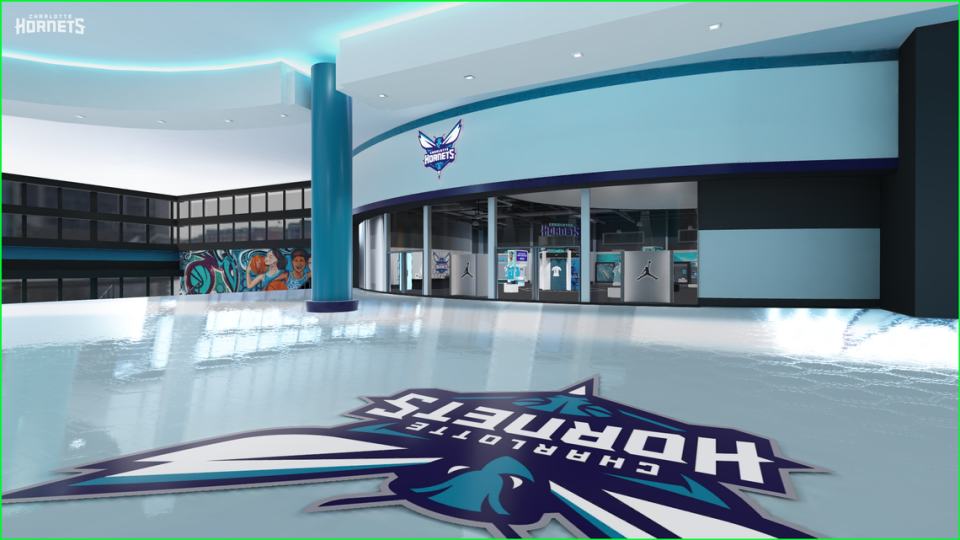
Hornets fans can go to the store website and turn themselves into 3D avatars to roam, shop and interact with other fans. Avatars can even virtually try on apparel and accessories.
“As technology continues to evolve, it’s important that we meet our fans where they are, and this is a great opportunity to enhance that connection,” Hornets Sports & Entertainment President and Vice Chairman Fred Whitfield said in a statement.
Using AI to improve stroke care
Local hospitals are augmenting patient care with AI. That includes Novant Health.
Novant is the first health care system in North Carolina to use an imaging AI called VIZ.AI for stroke care, Dr. Pam Oliver, chief medical officer of Novant Health, recently told The Charlotte Observer.
VIZ.AI evaluates the images of stroke-like symptoms from CT scans, looking for evidence of blockage and large vessels in the brain. The AI can do that as soon as the images are put through the scan and sends an alert to the radiologist team’s phone if it suspects a blockage.
“The technology is not making the diagnosis,” Oliver said. “It’s improving the time for us to get to a diagnosis so we can then treat the patient.”
The AI cut down 10 minutes off of the hospital’s time to intervene for those types of strokes, to 28 minutes. “It’s still human oversight, with AI to help speed diagnosis,” Oliver said.
Another imaging AI is trained to read multiple images and flag urgent cases for radiologists.
AI.DOC, for example, reads patient CT scans and flags severe cases of stroke, pulmonary embolism or brain bleeds to the top of the queue for radiologists to deal with first. Novant has been using it since 2021.
This year, Novant cardiologists also began using HeartFlow, which uses CT scan images to detect potential cardiac disease and blockages. HeartFlow, Oliver said, identified 18% more people who needed intervention.
“Our approach to AI is used to augment and assist our human teams, not replace them,” Oliver said. “AI is going to evolve and we want to be early adopters, but where it makes sense.”
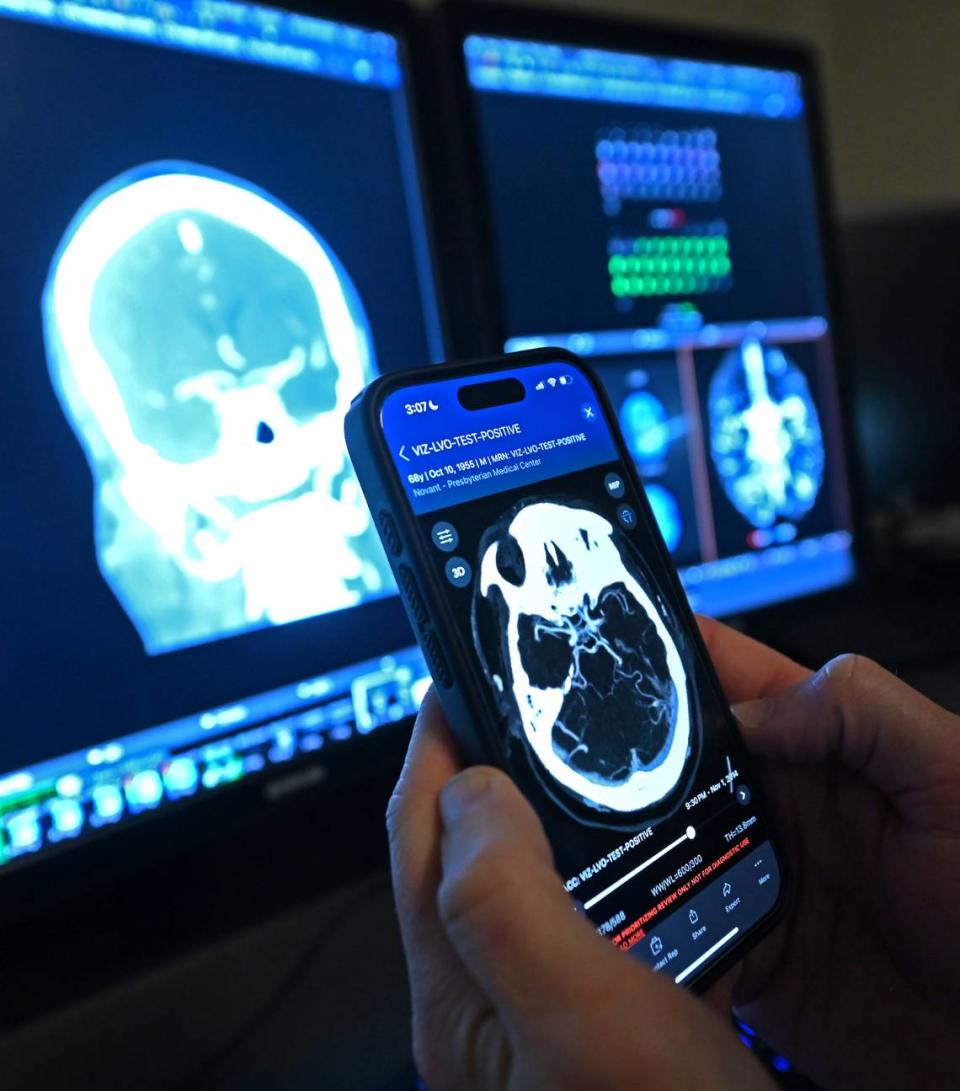
AI and public safety
Another way AI is deployed is through public safety measures.
Some AI is in plain view, such as Lowe’s so-called “snitch bots.” The Mooresville improvement chain uses robots to fight a spike in retail crime.
Robots use facial recognition technology to locate people that a retailer had put on a watch list if they had stolen from the store before. The mobile robots also record 360-degree video and say pre-programmed messages, such as telling someone they need to leave and that security has been notified.
Other security measures might not be so easily spotted.
At Northlake Mall, following a spate of shootings this year, AI license plate readers were installed in mall parking lots and connected to Charlotte Mecklenburg Police Department’s database. The Mooresville Police Department also is using license plate readers. Atlanta-based Flock Safety Automated License Plate Reader cameras capture and compare plate information in a database of criminals.
Mooresville police use AI to monitor roadways when searching for suspects, identifying stolen vehicles and license plates, and locating missing people, the department said on its Facebook page. Since using 52 Flock cameras throughout the city, Mooresville police recovered over $1.4 million in assets and made 276 arrests in the past three years.
Meanwhile, the department is embracing AI in other ways. It included $6,000 in its last budget for Clearview AI face recognition software to help verify people’s identities during police stops.
The license plate readers are motion activated and take a picture of the back and front of vehicles as it passes, said Holly Beilin, a spokeswoman for Flock Safety.
The license plate is then compared to databases in other states and the FBI, as well as Amber alerts. If the vehicle is on one of those lists, the local agency immediately receives an alert.
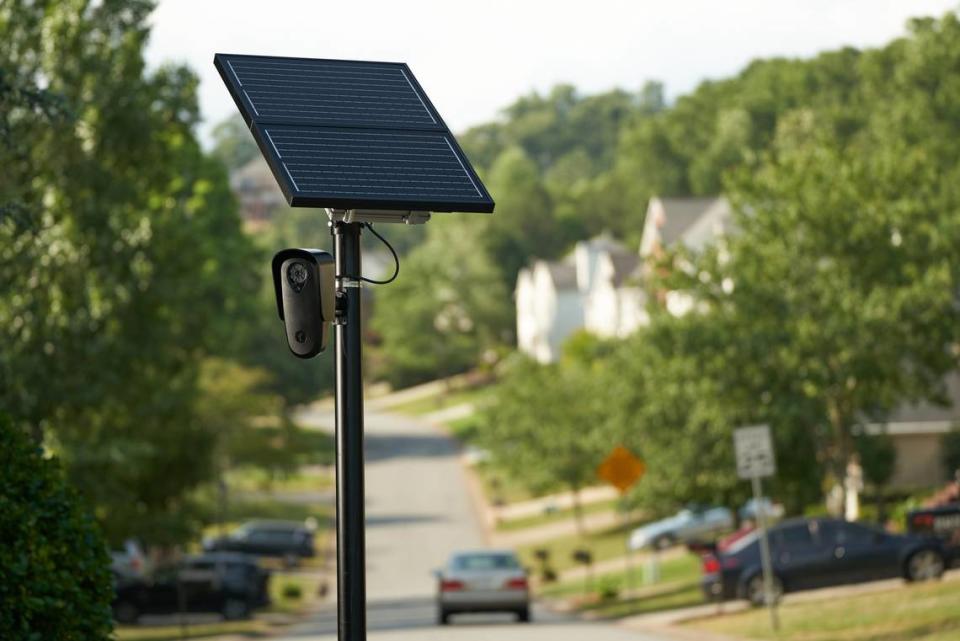
Flock is used in over 40 states, including both Carolinas, and in over 3,700 communities. The AI technology also is used by malls, schools and colleges.
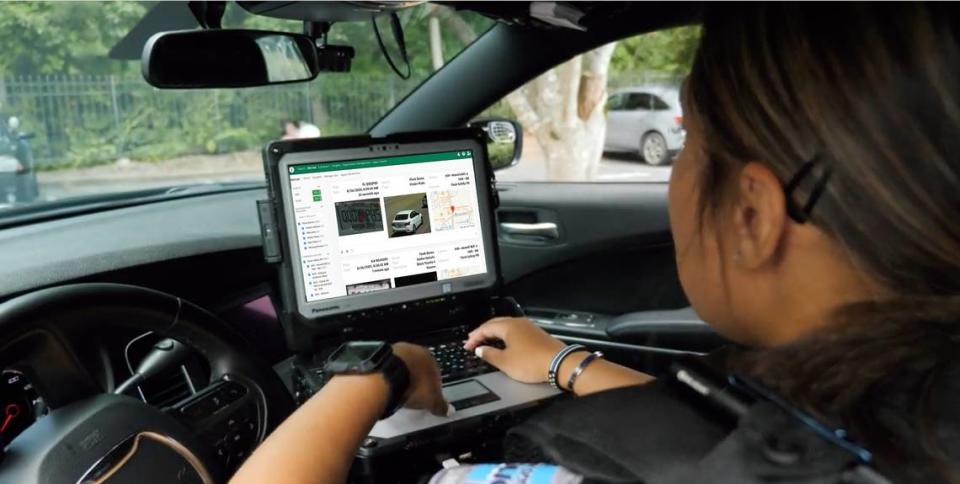
AI helps bank customers online
Financial institutions also are banking on AI.
Charlotte-based Truist has been using Truist Assist since last year on the bank’s mobile app and website. The AI virtual assistant deploys natural-language processing and understanding to answer questions and provide financial information.
It’s able to answer upward of 200 questions and responses, said Thomas Mazzaferro, Truist chief data and analytics officer. Over the past year, Truist Assist has had over 1 million conversations, he said, from “what’s my balance?” to “how much interest did I receive?”
But he doesn’t believe AI systems will replace humans in bank branches. “I see AI helping to automate and streamline some of the capabilities to better service our clients,” Mazzaferro said.
Law firm focuses on AI
With new technology also comes new lawsuits. That’s where Bradley law firm comes in.
In September, the Alabama-based Bradley, with 11 offices in seven Southern states and Washington, D.C., decided Charlotte would be a good place to set up an AI law team. Bradley partner Erin Illman leads that team and co-chairs the firm’s cybersecurity and privacy practice group.
“There is a lot of overlap between privacy, cybersecurity use of data and legal issues that arise with the use of artificial intelligence,” she said. “It’s becoming an area in which there’s just a lot of legal issues, everything from intellectual property to privacy to employment.”
The group of about 35 attorneys practice in different areas of law such as health, technology and intellectual trademarks.
“It’s such an area of growth,” Illman said. “There is still very little legislation or regulatory oversight specific to AI.”
AI also can speed up the process of drafting complaints but isn’t a substitute for a living, breathing lawyer. Attorneys must review the data and use proprietary products specific for case law, not open-sourced AI like ChatGPT, Illman said.
Otherwise, this might happen. In June, a federal judge fined two Manhattan lawyers and ordered them to apologize to judges named in a legal brief they submitted created by ChatGPT. The chatbot had fabricated opinions, and the lawyers failed to verify the citations. It was an embarrassing lesson about unknown risks using the new technology.
As AI becomes more embedded in daily life, issues leading to litigation can arise. Like how a company uses it to target consumers, or “deep fake” videos arise manipulating viewers on social media.
“I think the future is AI,” Illman said. “You could compare it to the early years in which the Internet was first being used.
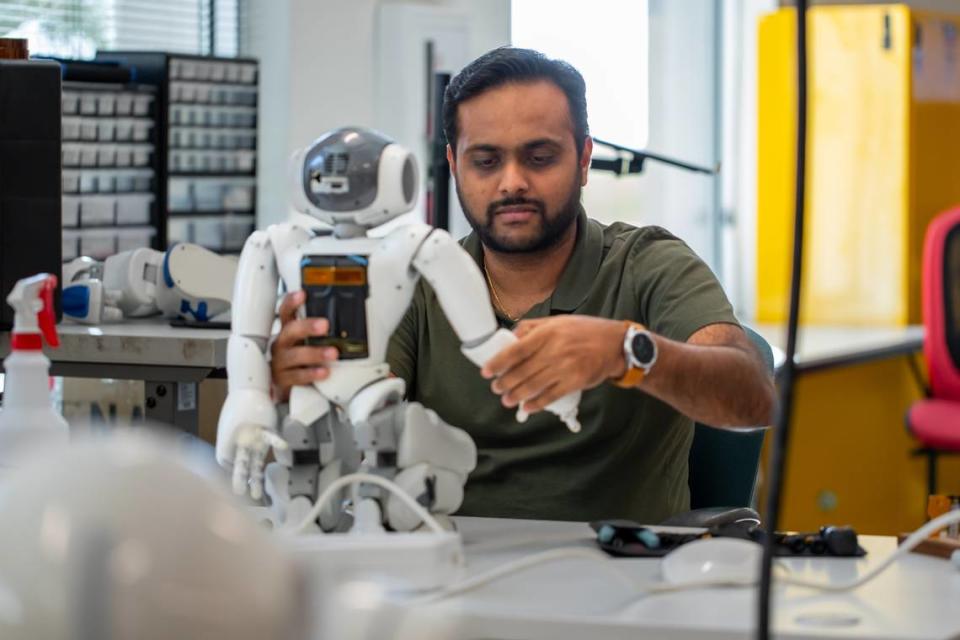
AI won’t replace people, right?
Sometimes, AI is quite prominent, such as with server robots, although they are not yet as autonomous as C-3PO.
RobotLab arrived in Charlotte this fall, and a second RobotLAB franchise also opened last month in Cary. Founded 15 years ago, RobotLAB, has more than 10,000 robots in use around the country.
The cost for a robot: about $8,000 and up. The price depends on the applications and programs, Chetan Patel said. And the Patels can tailor programs for customers, provide onsite help and repairs.
“We’ve watched Charlotte grow rapidly over the last decade,” Chetan Patel said. “And as local business professionals ourselves, we recognize how robots can be used to modernize businesses, solve staffing problems and correct operational inefficiencies.”
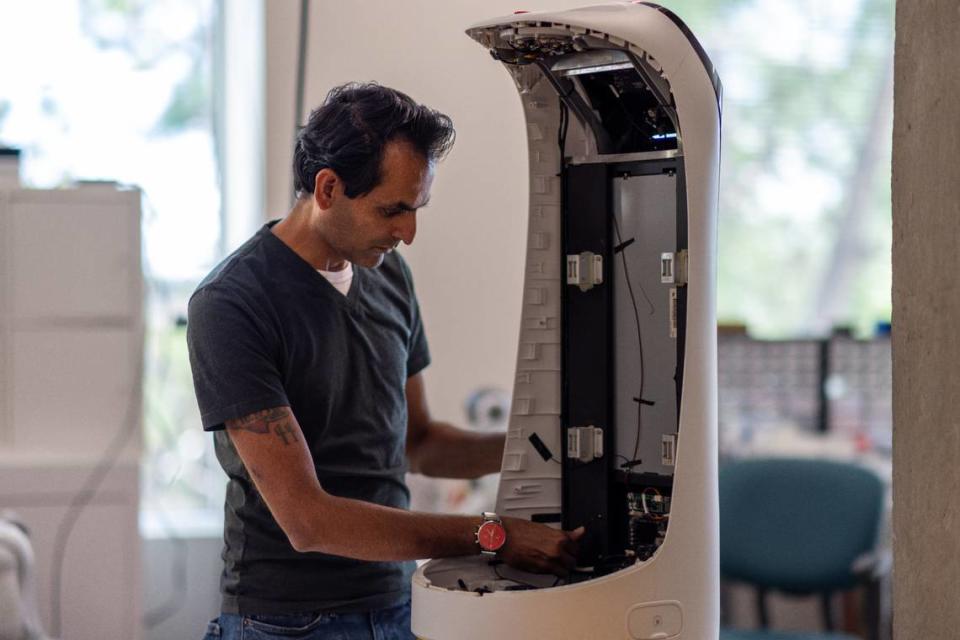
Neel Patel said the future of robots will indeed look like something out of science fiction. There will be cooking robots, robots in agricultural and even firefighting AI-powered robots.
“The robots aren’t just walking, fancy robots. They are really smart,” Chetan Patel said. They can easily integrate into a hotel system to take supplies to guests and, on their way back, sanitize themselves.
But the Patels insist their robots won’t replace the region’s human workforce.
“They’re going to be reducing the workload of the existing employees,” Chetan Patel said. “We want to just make their life easier.”

